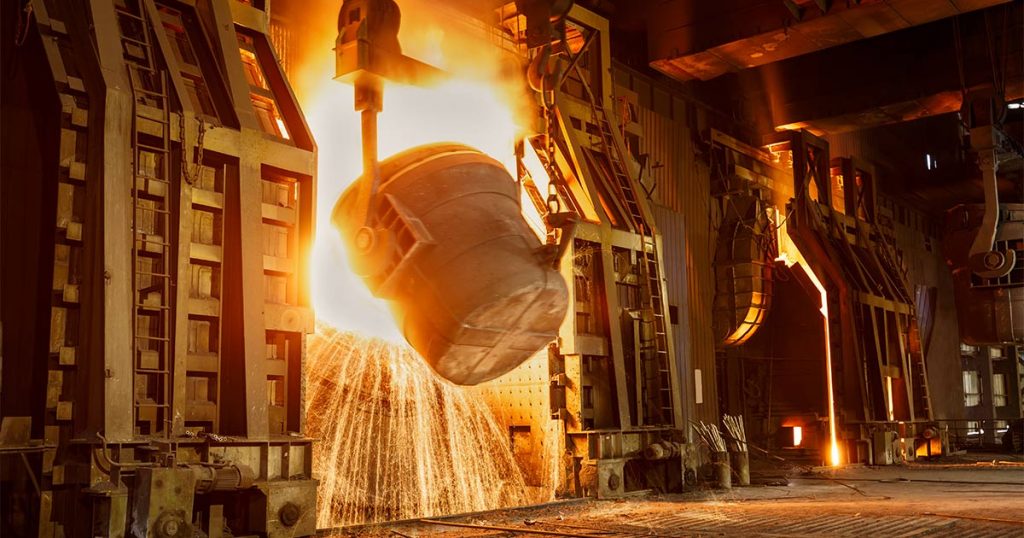Dinson Iron and Steel Company begins production of steel billets
DINSON Iron and Steel Company (Disco) has announced the commencement of steel billet production in a development expected to benefit local iron and steel players by easing access to essential raw materials.
The production of steel billets marks a significant milestone for Disco, aligning with its strategic objectives to enhance local manufacturing capabilities and support the domestic steel industry. By producing steel billets locally, Disco aims to reduce dependency on imports, thereby lowering costs and improving supply chain efficiency for local iron and steel manufacturers.
The availability of locally produced steel billets is expected to catalyse growth in the construction and manufacturing industries, which rely heavily on steel products. This, in turn, could lead to job creation and economic development in related sectors.
The blast furnace at the massive US$1,5 billion Disco plant in Manhize, Midlands Province, roared to life last month, marking the commencement of pig iron production following the successful completion of test runs.
The milestone development has ignited a spark of hope for Zimbabwe’s industrial revival drive, an affirmation of the Second Republic’s commitment to transforming the economy in line with Vision 2030.
Pig iron, the initial product of the blast furnace, serves as the foundation for further steel and steel billet, a vital raw material for various industrial applications.
Posting on X page, Disco said: “Exciting news! We’ve taken another step forward; Disco Steel has officially started producing steel billets.”
During a recent tour held by Industry and Commerce Minister Mangaliso Ndlovu at Zimplow in Bulawayo, Mealie Brand operations manager Mr Special Musoni said they are still struggling to access raw materials for the production of different farming and mining equipment.
He said the coming of Dinson will be an added advantage to them.
“We need local suppliers of steel, we understand that the Manhize plant is sitting on huge reserves of iron ore but unfortunately they will be rolling round bars and flat bars, they are not going to be rolling sections that are critical in our industry,” said Mr Musoni.
“We need angle iron and tunnel iron and we are in a position to give them our rollers to roll S-beam material, so it is critical for that area to be given attention.”
The availability of raw materials from local players promotes competitiveness as it reduces the cost of doing business.
The iron and steel industry plays a critical role in the industrialisation of the country and the Government has prioritized the value chain to nurture it.
Following the closure of Zimbabwe Iron and Steel Company (Zisco) local players have been struggling to access raw materials which has seen a lot of them relying on scrap metal. -chroncile








